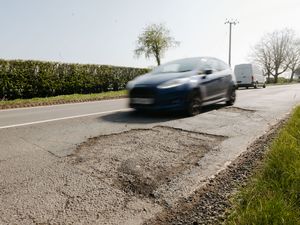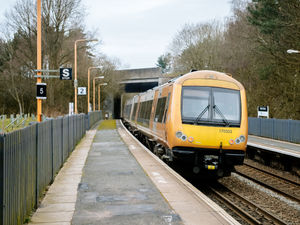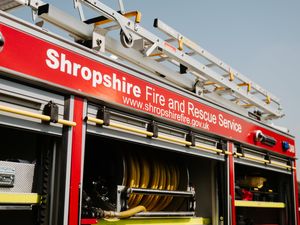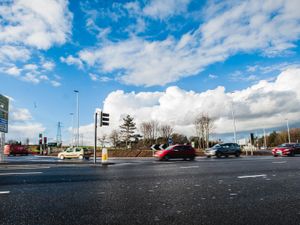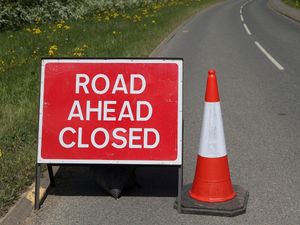Campaigners’ railway reopening hopes as £500 million pot is revealed
The Government is making £500 million available to reopen disused railway lines – which could see communities in the Black Country and Shropshire reconnected to the rail network for the first time in decades.
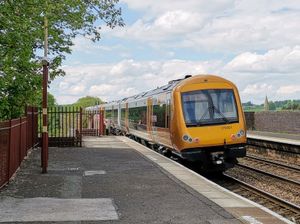
Stations in Willenhall, Darlaston, Newport, Ironbridge, Aldridge, Tettenhall and central Dudley have all been identified as ripe for reopening, although critics have warned that the budget will not be enough.
Transport Secretary Grant Shapps said the Government was keen to open many of the lines closed during the infamous Beeching cuts of the 1960s and early 70s.
More than 5,000 miles of track and nearly 1,500 stations were closed during the period from 1964 to 1970, following a report by British Railways chairman Richard Beeching.
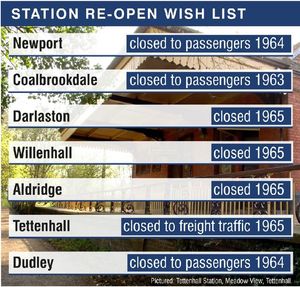
Beeching, an ICI director, was brought in by then transport secretary Ernest Marples to streamline British Railways, which was making heavy losses. His 1963 report, The Reshaping of Britain's Railways, led to the closure of branch lines across the country.
West Midlands mayor Andy Street identified the reopening of stations at Darlaston, Willenhall, Aldridge and Tettenhall as close to the top of his shopping list.
In August last year he announced that the Government had provided £10 million worth of funding towards the cost of reopening Willenhall and Darlaston stations. He said he hoped to see the new stations opened by next year.
“These new stations will help drive significant regeneration of the Walsall to Wolverhampton corridor," he said.
Target
“By getting people out of their cars and onto this re-opened passenger line we are tackling both congestion and the climate change emergency at the same time.”
Mr Street said his next target was Tettenhall station, which closed to passengers in 1935, although it remained open to goods trains until 1965. While the line has been removed, the station building is still intact. Earlier this month Mr Street said he had commissioned the West Midlands Rail Executive to carry out a feasibility study into the plans after a positive response in a residents' survey.
Property developer Harworth, which is redeveloping the former Ironbridge power station site, said it hoped to reopen the Ironbridge and Coalbrookdale line to passenger services.
The line closed to passenger services in 1963 – before the Beeching cuts – although it was briefly reopened in 1979 and 1988 for special services.
Stations that could reopen under ambitions proposals
Councillor Eric Carter, chairman of the Marches Strategic Rail Group, also said he would like to see the line between Stafford and Shrewsbury reopened, which would put Newport back on the railway map. He did concede, though that there may be obstacles to this.
There have also been calls for the mothballed Stourbridge-Lichfield line, which could see the reopening of stations such as Pelsall, Brownhills and Dudley town centre, although plans for the Midland Metro tram system could make that difficult.
Councillor Carter said he was greatly encouraged by the news, and was seeking a meeting with Mr Shapps to see what opportunities it would open up.
He said he expected to see the line between Ironbridge power station and Telford reopened within the next two to three years.
He pointed out that the line closed before the development of Telford new town and its associated industrial estates. The line was unlikely to have closed had rail bosses foreseen the way the area would develop, he added.
Councillor Carter said the Stafford-Shrewsbury line would be more difficult to reopen because of the developments which have since taken place along the route, although he said the Stafford-Newport stretch might be more realistic.
Housing estates
“Over the past 20 years we’ve had housing estates across the line from Donnington, which we’d have to get past. There are similar issues in Stafford," he said.
“It’s about wanting it to happen but being realistic. We would have to redraw the lines of where it used to be.
“There are people who say it’ll never happen, but you have to have a vision. The people in the 1960s should have had the vision to keep the track available, but instead they had people successively take up the track to build things up. That’s a lack of vision.
“There’s no such thing as can’t – there are problems, but you have to have the vision to solve the problem.”
Environmentalist Tim Weller has long campaigned for the 35-mile stretch of railway between Stourbridge and Lichfield to reopen. The link would put Dudley town centre back on the national rail map, and would also re-establish the link between Derby and Worcester.
However the West Midlands Combined Authority has committed to using a four-mile stretch of the line, from Wednesbury to Brierley Hill for trams, and the disused station in Dudley town centre has been earmarked for a light rail innovation centre.
Sensible
Mr Weller has been fiercely critical of this, and said that efforts should instead be focused on reopening the rail line.
"It is far more sensible to reinstate the commuter and intercity trains on the full 65km for the same price as slow trams," he said.
Mr Shapps has already pledged £100,000 towards a feasibility study into reopening the line between Fleetwood and Poulton-le-Fylde in Lancashire, which closed in 1970.
Mr Shapps said: "Many communities still live with the scars that came from the closure of their local railway more than five decades ago.
"Today sees work begin to undo the damage of the Beeching cuts by restoring local railways and stations to their former glory."
But critics have warned that the £500 million allocated by the Government – a pledge in the Conservative Party manifesto – would fall well short of the mark if all of Beeching's cuts were to be reversed.
Sim Harris, managing editor of industry newspaper Railnews, said reopening many of the lines which fell victim to the Beeching cuts would cost "billions".
Councillor Carter conceded that the money allocated would not be enough to open all the lines, but said it would pay for feasibility studies which could ascertain which routes would be viable.
"I think it's very exciting," he said.
The Government also plans to open another round of bidding for setting up new stations, allocating £20 million to the initiative.

